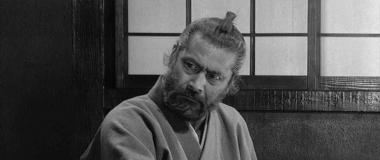
Akira Kurosawa's Akahige (Red Beard) gives us the great gift of Dr. Niide, whose nickname provides the title of this 1965 film. Red Beard is on the short list of truly admirable fictional heroes, and is played by Toshiro Mifune with the actor's typical understatement, as a man whose great humility and good will--and humor--is untainted by false pride--or false humility. He simply moves forward, implacable and self-effacing, healing as though he has no other choice--he is a doctor in a charity clinic--and shining a light on everyone he meets so they can see clearly their failings, strengths, and needs--mostly the need to stand with him to do the job that waits for them.
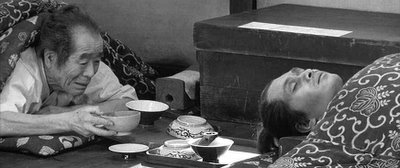
Noble, eh? But fortunately Kurosawa and Mifune manage the material without preachiness or puffed-up moralizing. On the contrary: Dr. Niide expresses confusion over the fact of suffering; he never claims to know any will higher than that of his profession, which urges him to heal, even when he feels he shouldn't. He approaches his duties with the kind of--dare I speak his name?--John Wayne forthrightness that I think lies at the root of much of Kurosawa/Mifune's work, a source of strength or weakness, depending on whom you ask. But I don't think Red Beard falls into simplistic sentimentality or lazy self-assurance--and self-centeredness--as Wayne's movies sometimes did. Instead, it makes generous room for various other characters and stories that contribute to the cumulative impression Kurosawa wants to make on us concerning the need for compassion, and our capacity to provide it, until the movie becomes the definition of a "personal epic."
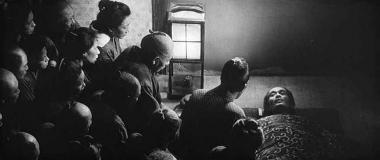
He broadens the scope of his film beyond Red Beard, shifting to the newest doctor on staff, Yasumoto (Yuzo Kayama), who feels the position is a punishment, and is biding his time until he can become "the shogun's doctor." His life at the clinic provides the viewer with a clear sense of what's necessary to become like Red Beard, despite the obstacles and failures. There is also an interlude in which a dying patient (Tsutomu Yamazaki) confesses the great secret of his life in an extended flashback that highlights Kurosawa's beautiful use of black and white, as well as his "humane" composition style and framing techniques. The finale of the film traces Red Beard's influence as it moves from doctor to patient to the world outside the clinic. The emotions Kurosawa generates are sometimes overwhelming: the movie breaks your heart, then asks you to bend down, gather up the pieces, and put it together again so that you can get back to work.
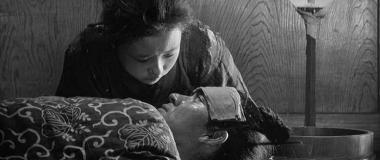
Near the end of the film, the clinic's female workers call a dying boy's name down a well in the belief that doing so will bring him back. The sound echoes like the wails of mourners, but also like outraged demands, across the length of the film; Kurosawa even takes us down the well to look up at their desperate faces, so that we can answer them and let them know we hear our own names, even from that depth. I have watched many Kurosawa movies, but none of them has affected me as deeply as Red Beard. It is his hidden fortress, a tireless samurai protecting the innocent, a dream I will never forget.
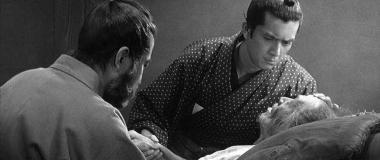
2 comments:
I love Japanese movies...Rather have it in the original language than stupid voice overs.
I like the Seven Samurai and those two old movies that was remade into that Bruce Willis Movie...I forget the name but it was great.
So....
This blog looks cool, I'm going to RSS. Thanks!
Post a Comment